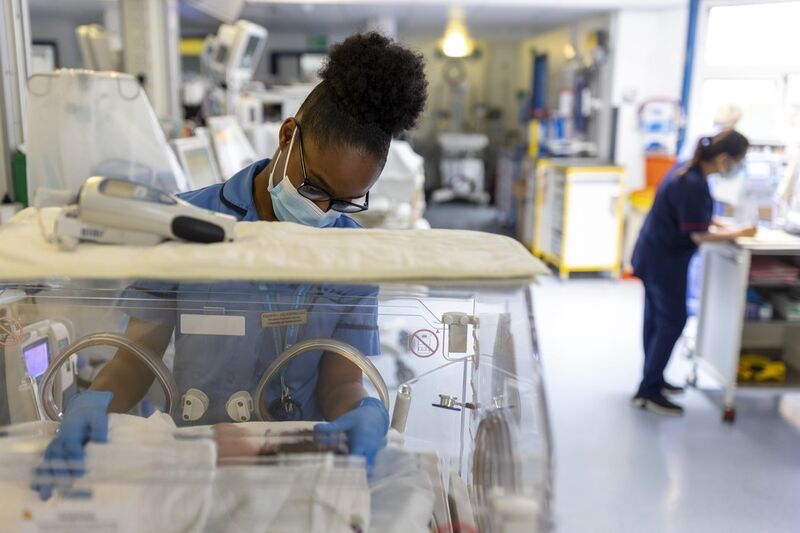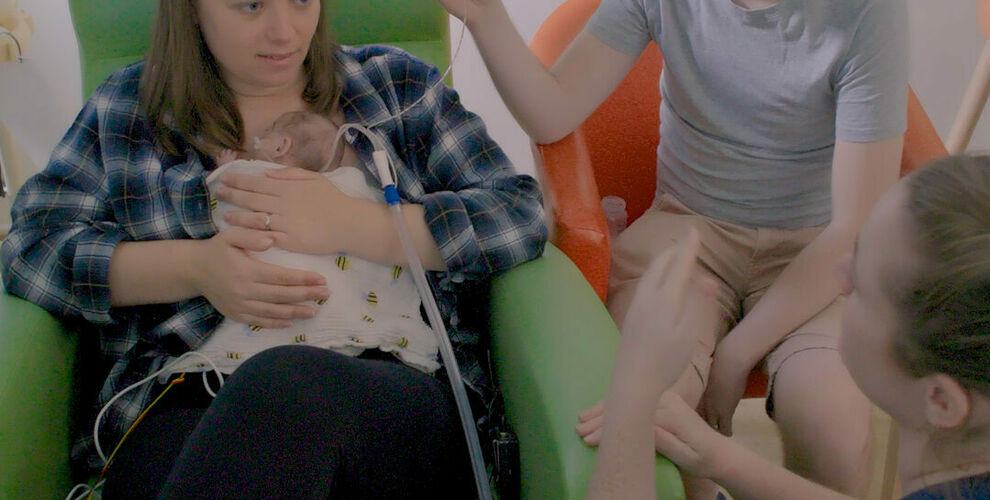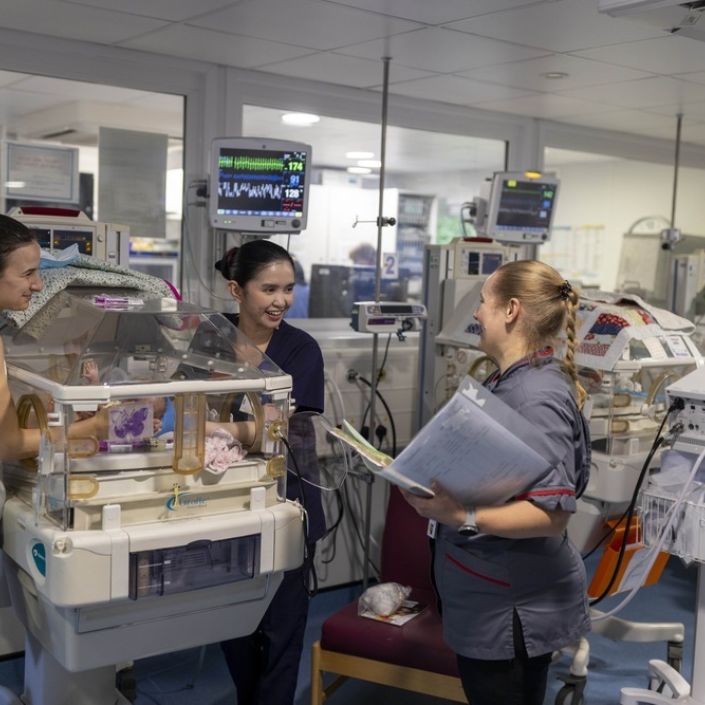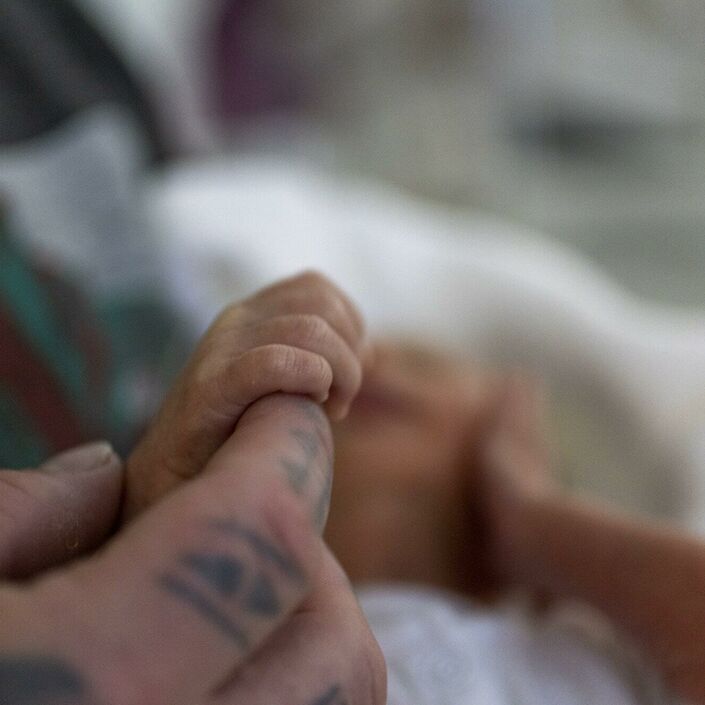Blood is the body’s transport system, moving oxygen, nutrients, waste products and chemical messages to all the right places. Your baby’s blood does many jobs, including fighting infection. Because of this, blood tests can show how your baby is progressing.
Most blood samples are taken by pricking the skin to get blood from the back of your baby’s hand or heel.
The team might check the following things:
Sugar levels
Blood carries energy in the form of sugar. This test tells the doctors whether your baby’s blood sugar levels are being properly controlled.
There are many reasons why your baby may need their blood sugar monitored. Most commonly, babies born to mums with diabetes (a condition which causes blood sugar levels to be too high) or babies born with a very low birthweight will be monitored more closely.
This is because they may have problems keeping a healthy blood sugar level.
Blood gases
As well as carrying oxygen from the lungs, blood also carries carbon dioxide back to the lungs so we can breathe it out as waste gas.
Measuring the levels of carbon dioxide, as well as other waste chemicals carried by the blood, can give information about how your baby is breathing. Blood gases can also help tell how other organs, such as kidneys, are working.
Platelets
These are important for controlling bleeding. In premature and sick babies, the platelet count can be too low. This is why it is monitored. If the level does get too low, your baby might need a platelet transfusion.
Haemoglobin (pronounced hee-mo-glow-bin)
This chemical helps blood to transport oxygen. It is carried by red blood cells. If your baby does not have enough red blood cells, the body may not get enough oxygen. This is called being ‘anaemic’ (pronounced an-ee-mick).
If your baby’s haemoglobin gets very low, they might need a blood transfusion.
White blood cells
These cells play a big role in fighting infections. You may hear your care team talking about ‘C-reactive protein’ or ‘CRP’. These are part of your immune system and their levels go up with infection. Checking these levels helps to see how well your baby is fighting an infection, or if an infection is starting.
Multiple tests
Sometimes, your baby might need to have multiple blood samples taken over a short period of time. This might mean that they need a blood transfusion to replace the blood that is used for testing.
This is nothing to worry about and you can ask the care team about comfort holding and other forms of parental touch to help soothe your baby during these procedures.




